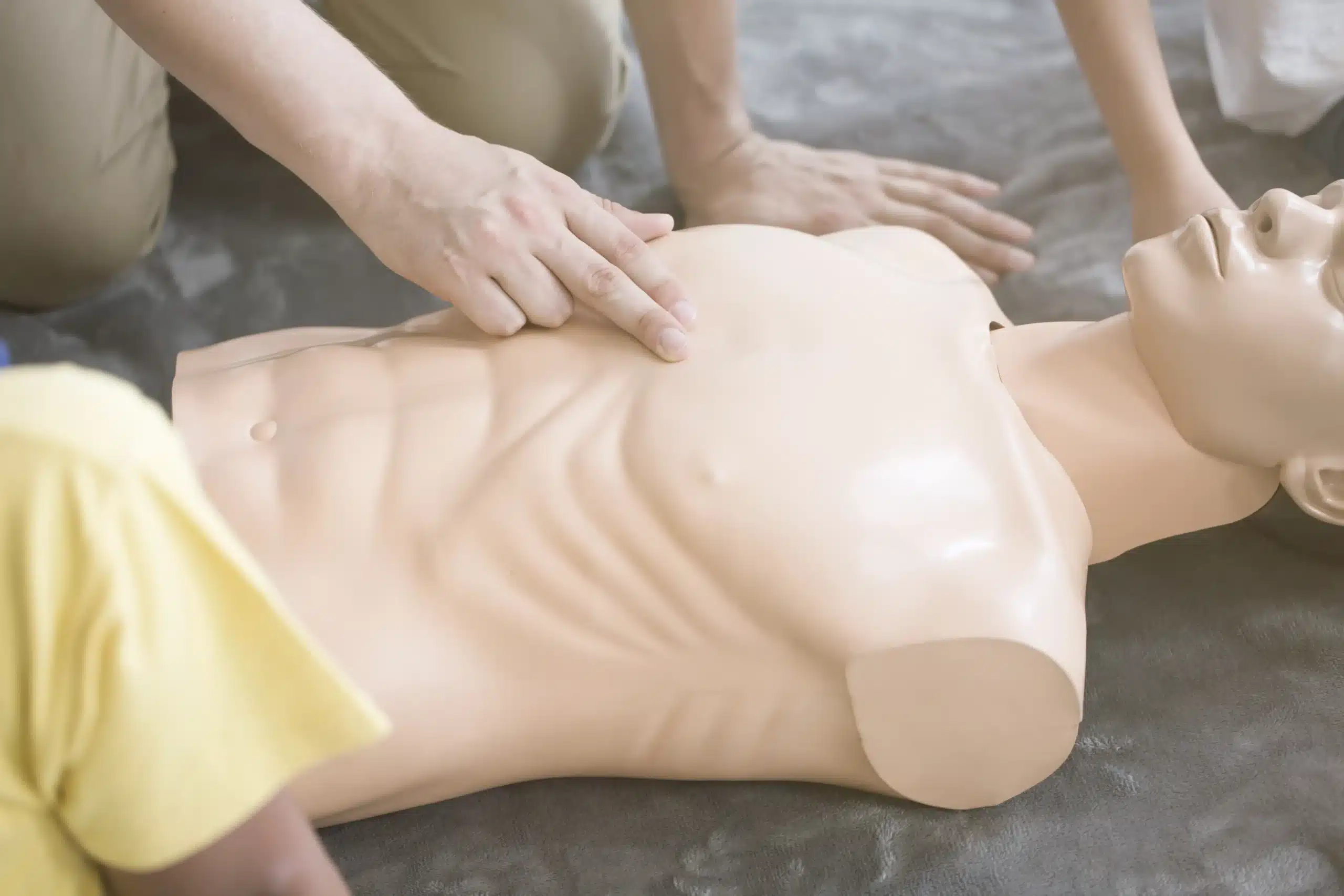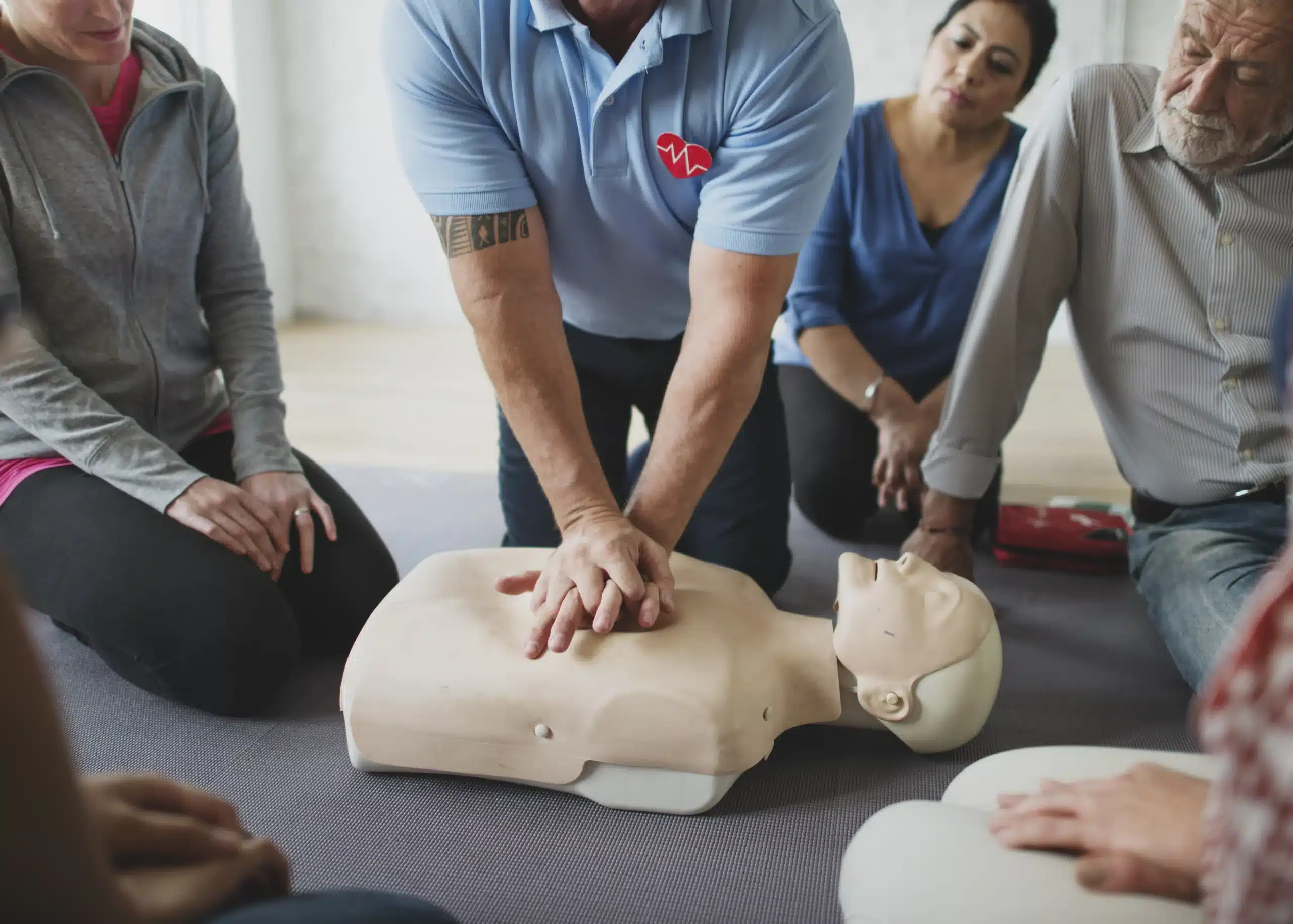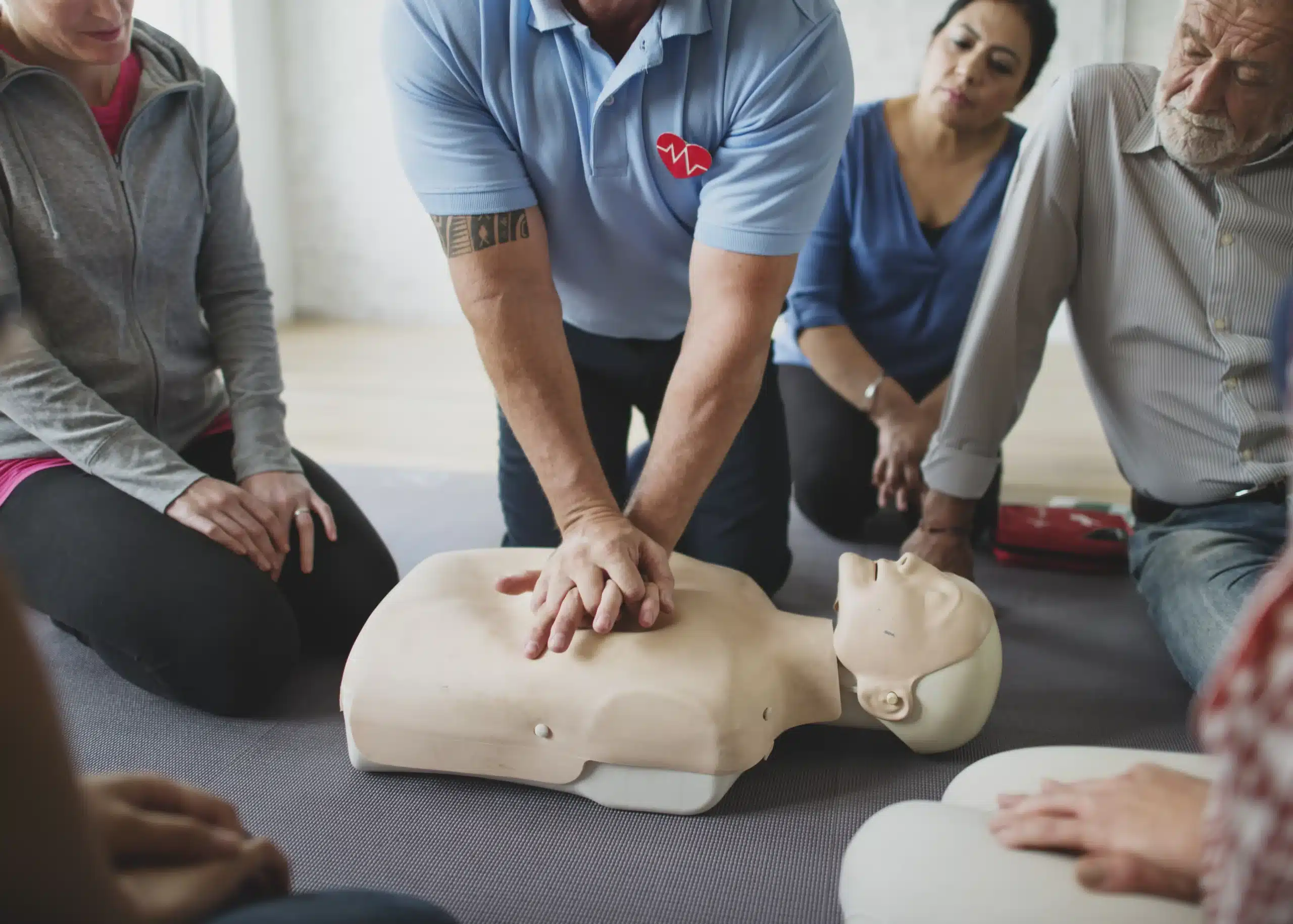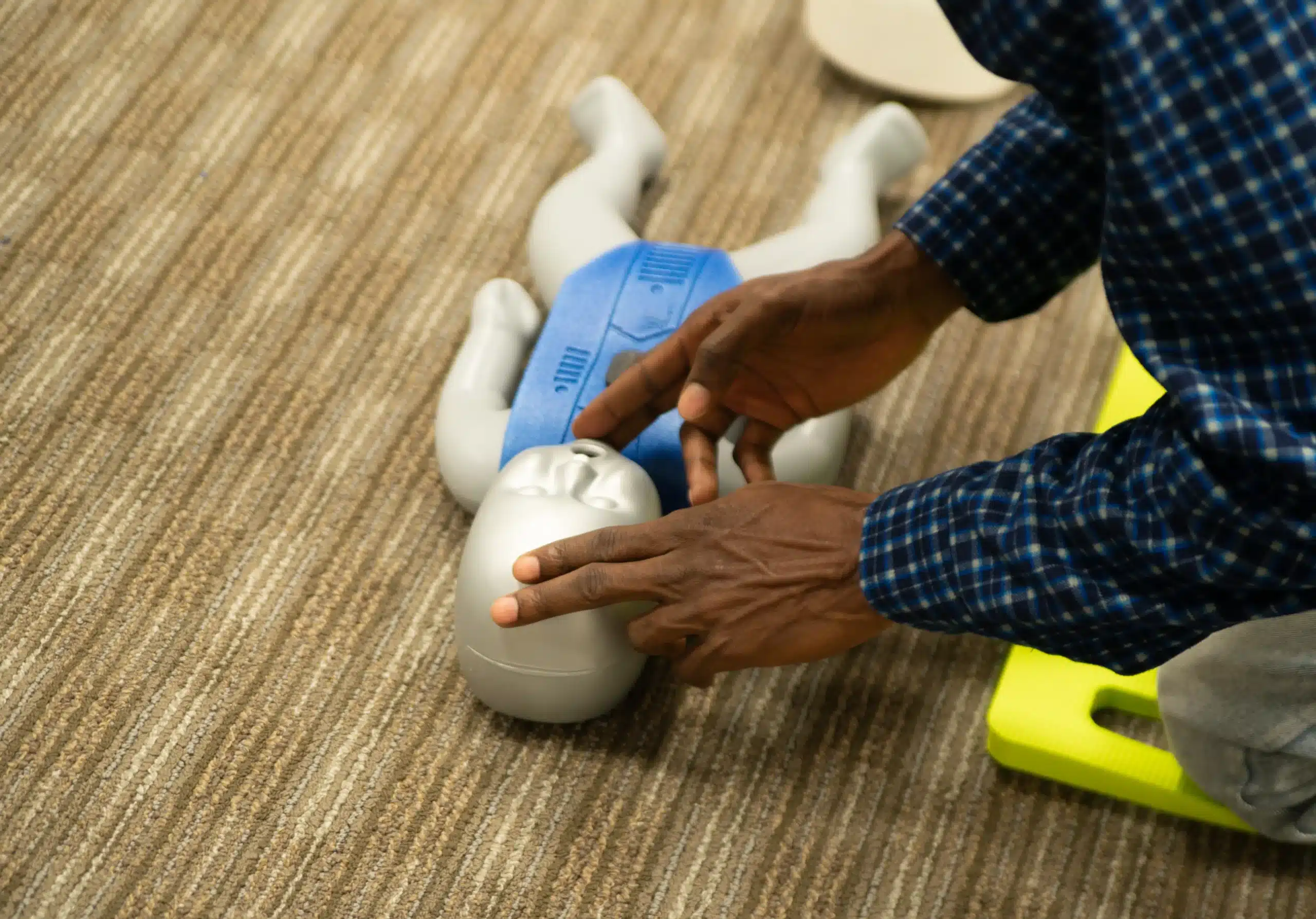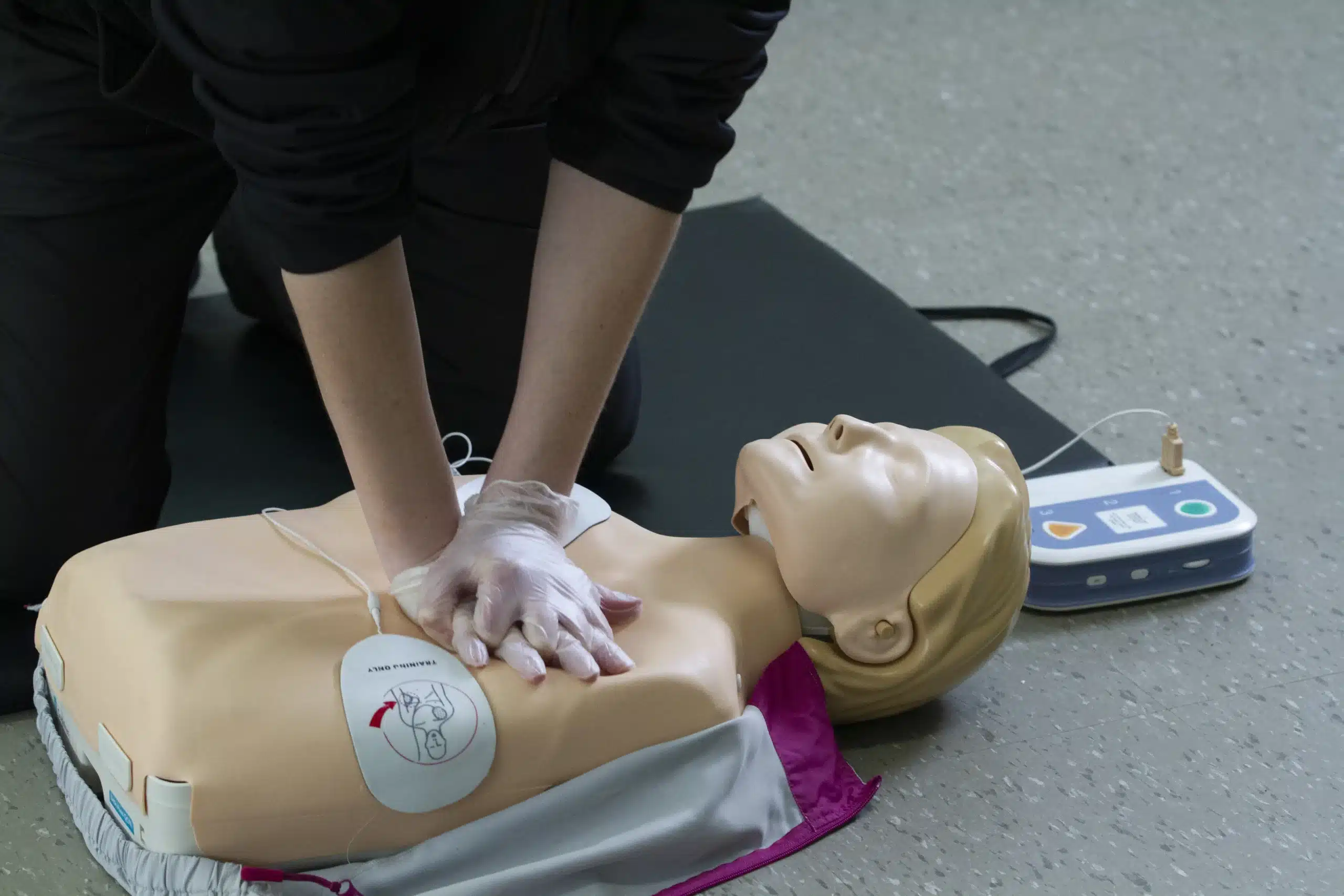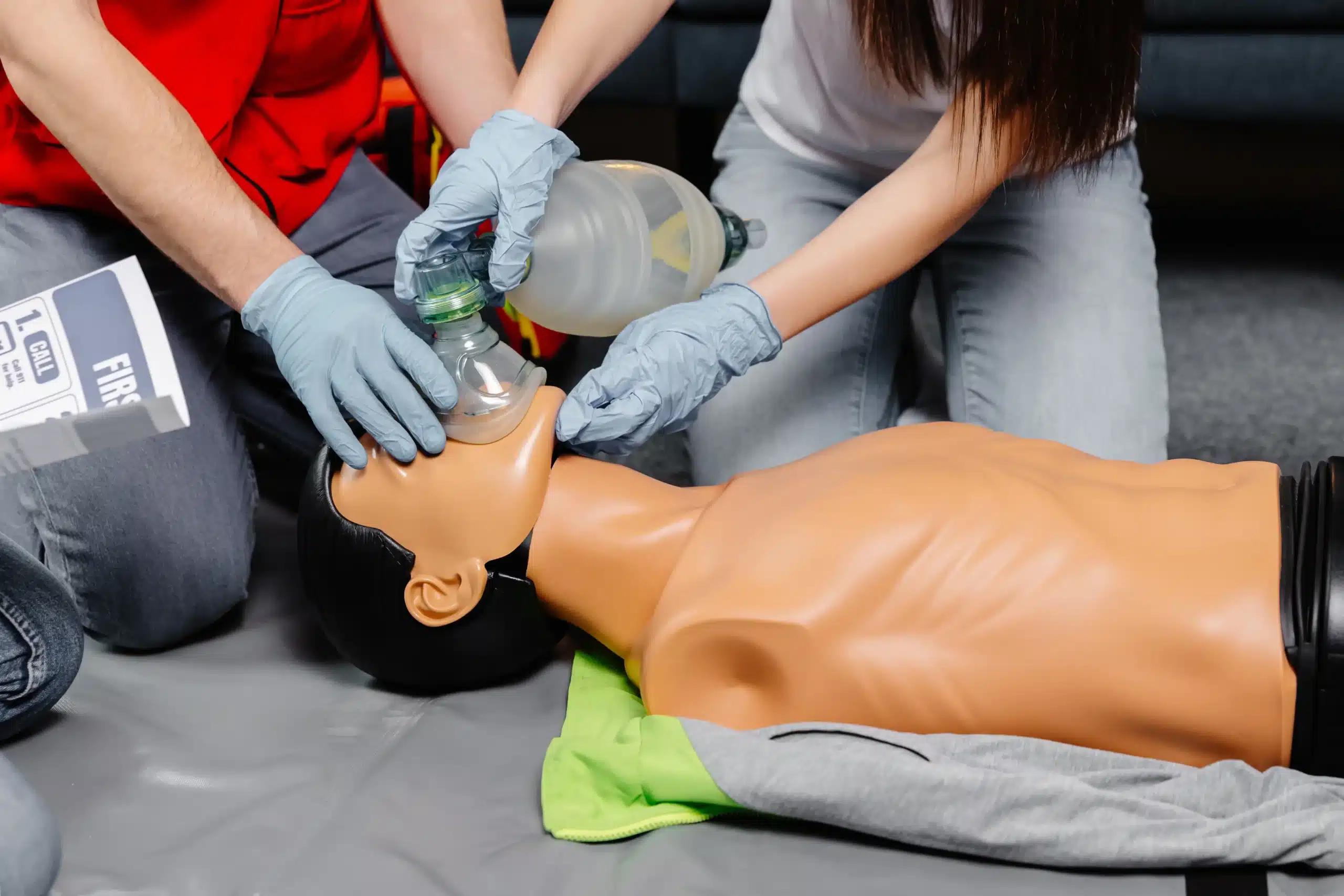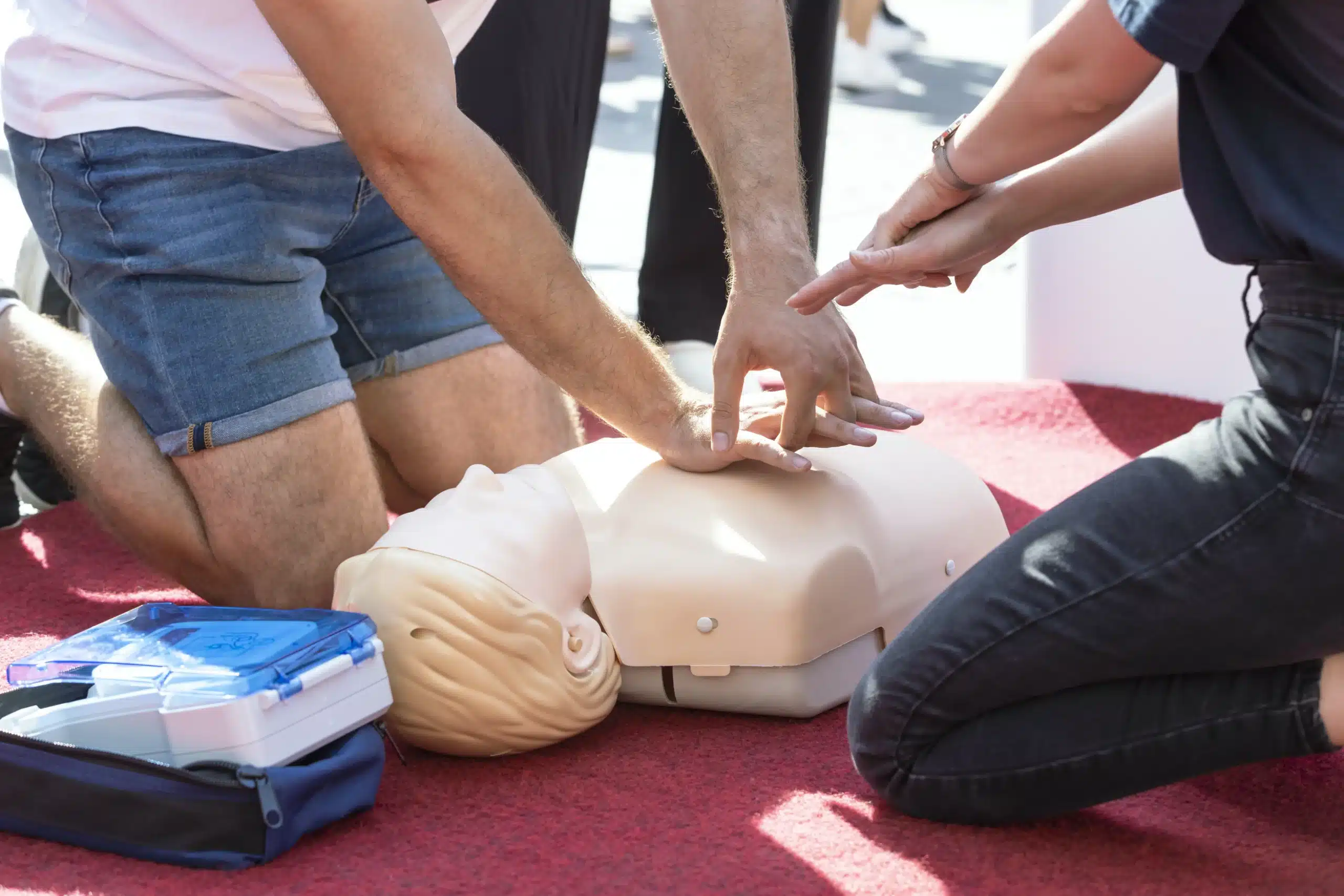Time to renew your BLS certification? If you’re typing “bls renewal near me” into your search bar, you know how important it is to stay current with these lifesaving skills. This guide is designed to make the process easy and stress-free. We’ll cover everything from understanding the core components of BLS to finding the right course format and provider for your needs. We’ll also explore cost-saving options and discuss what to expect during your renewal course. Let’s ensure you’re prepared to provide the best possible care in any emergency.
Key Takeaways
- Stay current with BLS guidelines and best practices through regular renewal. This ensures you’re prepared to provide effective care in emergencies and meet employer requirements.
- Choose a reputable BLS renewal provider with proper accreditation, qualified instructors, and comprehensive course content. Consider factors like cost, format, and student reviews to find the best fit for your needs.
- Prepare for your renewal course by reviewing current BLS protocols and practicing essential skills. This will boost your confidence and help you get the most out of your training.
What is BLS & Why Renew?
What is BLS Certification?
Basic Life Support (BLS) covers a range of lifesaving techniques and tools used in emergencies. These include cardiopulmonary resuscitation (CPR) and using automated external defibrillators (AEDs). It’s the first line of defense for people facing life-threatening situations like choking, difficulty breathing, and cardiac arrest. BLS certification is essential for many healthcare professionals, as well as other roles like lifeguards and fitness instructors, who need these critical emergency care skills.
Why Stay Current?
Staying up-to-date with your BLS certification is key for several reasons. First, guidelines and best practices in emergency care are constantly evolving. Renewing your certification ensures you’re using the most effective techniques. Second, it demonstrates your commitment to providing safe and effective patient care. Many employers require current BLS certification as a condition of employment. Remember, BLS certification is typically valid for two years, and there’s no grace period after it expires. Renewal involves completing a refresher course and passing an exam. Don’t let your skills lapse—stay current and be prepared to respond effectively in an emergency. Check out our low price guarantee for the best deals on BLS renewal courses.
Find BLS Renewal Courses Near You
Finding the right BLS renewal course requires a little research. Here’s how to get started:
Search Online
Start with a simple online search. Look for “BLS renewal courses near me” or “BLS renewal in [your city].” Check out local CPR training centers like Campbell CPR Classes, which offers a variety of AHA-based CPR renewal courses, including BLS, ACLS, PALS, and First Aid. Reading online reviews can give you a sense of other students’ experiences.
Check Local Healthcare Providers & Training Centers
Hospitals, clinics, and other healthcare providers often offer BLS renewal courses for their staff and the community. Contact your local healthcare providers or check their websites for upcoming training sessions. Safety Training Seminars, for example, provides AHA-certified courses in BLS, ACLS, PALS, CPR, and First Aid in Campbell. Community centers and fire departments are also good resources.
Contact Professional Associations
Many professional organizations related to healthcare offer BLS renewal courses or can direct you to reputable providers. Reaching out to these associations can be a great way to find high-quality training tailored to your specific field. Consider reviewing common mistakes people make while providing basic life support to brush up on your skills.
Top BLS Renewal Providers
Here are a few well-known BLS renewal providers to consider:
Campbell CPR Classes
Campbell CPR Classes is a woman-owned American Heart Association Training Center offering various AHA certification courses, including BLS, ACLS, PALS, CPR, and First Aid. They focus on excellent customer service and competitive pricing.
American Heart Association
The American Heart Association also provides CPR renewal courses, often structured as abbreviated versions of their initial certification classes. They are a trusted authority on CPR and emergency cardiovascular care.
Red Cross
Red Cross BLS renewal courses make it easy to refresh your skills and maintain your credentials. They offer a range of course formats, including online and in-person options.
National CPR Foundation
The National CPR Foundation partners with training centers across the country to deliver high-quality CPR and BLS education. Check their website for student testimonials.
ProCPR
ProCPR offers a variety of online CPR and BLS courses that are convenient and accessible. Their online format allows you to renew your certification from the comfort of your home.
Compare BLS Renewal Course Formats
Not sure which BLS renewal course format is right for you? Let’s break down the pros and cons of in-person, online, and blended learning options so you can find the perfect fit.
In-Person Courses
In-person BLS renewal courses offer hands-on instruction and real-time feedback from certified instructors. This format is ideal if you value face-to-face learning and thrive in a structured classroom environment. You’ll practice skills in a controlled setting and have your questions answered immediately. Campbell CPR Classes emphasizes this practical training experience. However, in-person courses typically require a set schedule, which can be challenging if you have a busy or unpredictable work life.
Online Courses
Online BLS renewal courses like HeartCode BLS provide flexibility and convenience. You can complete the coursework at your own pace, anytime, anywhere. This format is perfect for those juggling multiple commitments or who prefer self-directed learning. Keep in mind that online courses usually require a separate in-person skills session for hands-on practice and official certification.
Blended Learning
Blended learning combines the best of online and in-person training. You complete the theoretical portion online at your convenience and then attend a shorter in-person skills session to demonstrate your competencies. This approach offers flexibility while still providing the essential hands-on experience and interaction with an instructor. If you enjoy self-paced learning but also value practical application, blended learning might be your ideal choice.
BLS Renewal: Costs & Value
Getting your BLS certification renewed doesn’t have to break the bank. Understanding pricing and exploring available discounts can help you find a course that fits your budget. Let’s break down typical costs, factors that influence them, and ways to save.
Typical Prices
BLS renewal course fees vary based on location, course format (online, in-person, or blended), and the training provider. Generally, in-person renewal courses range from $70 to $100. Online renewal courses tend to be slightly less expensive, often falling between $50 and $80. Remember that these are estimates, and it’s always best to check with specific providers like Campbell CPR Classes for their current pricing. They’re known for competitive rates and a Low Price Guarantee in Santa Clara County.
Factors Affecting Cost
Several factors contribute to the overall cost of a BLS renewal course. Course format is a primary one. In-person classes often involve costs associated with classroom space, equipment, and instructor time. Online courses may have lower overhead, making them more affordable. The training provider also plays a role. Some organizations, like the American Heart Association, set standard pricing guidelines, while independent training centers may have more flexibility. Finally, location matters, as prices can fluctuate based on regional market conditions.
Discounts & Deals
Look for potential discounts to make your BLS renewal more affordable. Many providers, including Campbell CPR Classes, offer discounts for group registrations, a smart choice for workplaces or groups of friends. Some providers also offer discounts for students, military personnel, or first responders. Bundling courses is another way to save. If you need to renew multiple certifications, such as BLS and First Aid, check if combined courses are available. Always inquire about ongoing promotions or special offers when contacting a training provider. For healthcare professionals, the AHA’s RQI program, offered by providers like Campbell CPR Classes, can be a valuable and convenient option for maintaining your BLS certification. Don’t hesitate to contact training centers directly to discuss potential cost savings.
Are You Eligible for BLS Renewal?
Knowing when and how to renew your BLS certification is essential for any healthcare professional. Let’s break down the eligibility requirements so you can stay up-to-date.
Current Certification Status
First, check your current BLS certification status. Your card clearly states the expiration date. BLS certification is valid for two years, and unfortunately, there’s no grace period after it expires. To renew, you’ll need to complete a renewal course and pass the exam. Don’t let your certification lapse!
Renewal Timeframes
Ideally, plan to renew your BLS certification before it expires. You can take a renewal class up to 60 days after your certification lapses, giving you a small window to catch up if needed. Remember, though, that your certification is technically inactive during that time. It’s always best practice to renew promptly. Check with your employer or regulatory body, as they may have specific renewal requirements.
Required Documents
Before you sign up for a BLS renewal course, gather your necessary documents. This typically includes your current or expired BLS provider card. If you can’t locate your card, contact your certifying organization, such as the American Heart Association, or use their online resources to verify your certification status. Having these details readily available will streamline the renewal process. You can also contact us for assistance with BLS renewal or any other CPR certifications.
Choose the Right BLS Renewal Provider
Finding the right BLS renewal provider is key to a smooth recertification process. Here’s what to consider:
Accreditation & Certification
First, confirm your provider is accredited by a recognized organization like the American Heart Association (AHA). This ensures the course meets established standards and covers essential lifesaving techniques, from CPR to using an AED. Solid BLS training equips you to handle life-threatening emergencies. A good BLS renewal course will cover these core components. Campbell CPR Classes offers AHA-accredited BLS renewal courses.
Instructor Qualifications
Look for experienced, certified instructors who create a supportive learning environment. Check for instructor bios or testimonials—hearing from past students offers valuable insights. A great instructor can significantly impact your learning. They clearly explain complex concepts, demonstrate techniques effectively, and answer your questions thoroughly. This personalized instruction can boost your confidence and prepare you to use your BLS skills.
Course Content & Materials
A comprehensive BLS renewal course should cover the latest guidelines and best practices. Make sure the content aligns with your professional needs. For example, if you work in healthcare, look for a course covering infant, child, and adult CPR, AED use, and other relevant skills. Campbell CPR Classes offers various AHA-based CPR renewal courses, including specialized training like EMSA Child Care Health & Safety and RQI. Consider your specific requirements when selecting a course.
Student Reviews
Reading reviews from other students offers insights into the quality of instruction, course materials, and overall learning experience. Look for comments about the instructor’s expertise, the clarity of the materials, and the helpfulness of the course content. Positive student reviews often mention instructors who build confidence and teach practical, applicable skills. These reviews can be invaluable when choosing a BLS renewal provider.
Prepare for Your BLS Renewal Course
Getting ready for your BLS renewal doesn’t have to be stressful. With a little preparation, you can walk into class feeling confident and ready to refresh your lifesaving skills. Here’s how:
Review Current Guidelines
Basic Life Support (BLS) encompasses many emergency lifesaving techniques, including CPR and using an AED. These skills are crucial in life-threatening situations, so staying up-to-date on the latest guidelines from the American Heart Association is essential. Take some time to review the current BLS protocols and refresh your knowledge before your renewal course. This will help you get the most out of your class.
Practice Your Skills
One of the best ways to prepare for your BLS renewal is to practice. Review the steps for CPR, how to use an AED, and other essential techniques. You can practice on a CPR manikin if you have access to one, or even visualize the steps. Common mistakes during BLS training often involve incorrect hand placement during CPR or improper use of an AED. Reviewing these common mistakes and practicing beforehand can help you avoid these errors and build your confidence.
What to Bring
Knowing what to bring to your BLS renewal course can make your experience smoother. While your instructor will provide most of the necessary materials, it’s a good idea to bring a few things. A notebook and pen are helpful for taking notes. You might also want to bring a water bottle and a small snack to stay energized. Comfortable clothing is also recommended, as you’ll be practicing physical skills. Check with your chosen provider, like Campbell CPR Classes, to see if they have specific recommendations. They offer a variety of courses, including BLS certification, and can answer any questions.
Related Articles
- BLS Renewal in San Jose: Find the Right Course – Campbell CPR Classes
- ACLS Renewal Campbell: Your Complete Guide – Campbell CPR Classes
- BLS Certification in Cupertino for Healthcare Providers – Campbell CPR Classes
- Your Guide to BLS Classes in San Jose – Campbell CPR Classes
- BLS HeartCode San Jose: Your Certification Guide – Campbell CPR Classes
Frequently Asked Questions
How often do I need to renew my BLS certification? BLS certification is typically valid for two years. It’s best to renew before your certification expires to ensure continuous coverage.
What’s the difference between online and in-person BLS renewal courses? Online courses offer flexibility, allowing you to learn at your own pace and on your own schedule. In-person courses provide hands-on training and direct interaction with an instructor. Blended learning combines both formats.
How much does BLS renewal cost? Costs vary depending on the provider, location, and course format. In-person courses typically range from $70 to $100, while online courses are often between $50 and $80. Check with specific providers for their current pricing and any available discounts.
What if I let my BLS certification expire? While there’s a small window (up to 60 days) after expiration to renew, your certification is technically inactive during that time. It’s always best to renew before your certification expires.
How do I choose the right BLS renewal provider? Look for providers accredited by a recognized organization like the American Heart Association. Consider instructor qualifications, course content, student reviews, and available discounts when making your decision. Contacting providers directly to discuss your needs is always a good idea.


